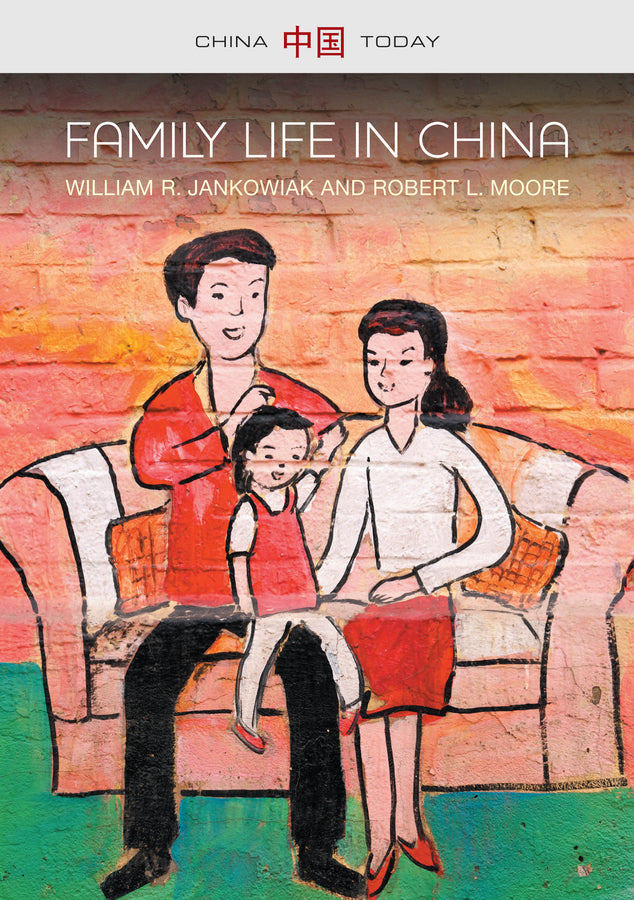Description
Explore the profound transformation of family dynamics in modern China with 'Family Life in China'. This insightful book examines how traditional family structures have evolved, influenced by socio-economic changes and the shifting values of Chinese millennials. As the country transitions from a Confucian-based ideology to one that emphasizes personal affection and diverse obligations, the authors delve into the implications of these changes on relationships among spouses, parents, and children. Understand the unique challenges faced by rural migrants in urban settings and the emotional adjustments required of families separated by opportunity. Offering detailed analysis on rural vs. urban family life, ethnic diversity, and regionalism, this book is essential for anyone interested in the interplay between family dynamics and societal transformation in contemporary China. With 232 pages of compelling content published by John Wiley & Sons in 2016, this essential read for sociologists, cultural analysts, and people fascinated by Chinese society presents a fresh perspective on the complexities of family life amid rapid change. Don't miss your chance to gain insights into this shifting landscape and uncover what family life in China looks like today. Note: Shipping for this item is free. Please allow up to 6 weeks for delivery. Once your order is placed, it cannot be cancelled. Condition: BRAND NEW. ISBN: 9780745685557.
Note: Shipping for this item is free. Please allow up to 6 weeks for delivery. Once your order is placed, it cannot be cancelled.
Condition: BRAND NEW
ISBN: 9780745685557
Year: 2016
Publisher: John Wiley & Sons (UK)
Pages: 232
Description:
The family has long been viewed as both a microcosm of the state and a barometer of social change in China. It is no surprise, therefore, that the dramatic changes experienced by Chinese society over the past century have produced a wide array of new family systems.
Where a widely accepted Confucian-based ideology once offered a standard framework for family life, current ideas offer no such uniformity. Ties of affection rather than duty have become prominent in determining what individuals feel they owe to their spouses, parents, children, and others. Chinese millennials, facing a world of opportunities and, at the same time, feeling a sense of heavy obligation, are reshaping patterns of courtship, marriage, and filiality in ways that were not foreseen by their parents nor by the authorities of the Chinese state. Those whose roots are in the countryside but who have left their homes to seek opportunity and adventure in the city face particular pressures as do the children and elders they have left behind. The authors explore this diversity focusing on rural vs. urban differences, regionalism, and ethnic diversity within China.
Family Life in China presents new perspectives on what the current changes in this institution imply for a rapidly changing society.
Note: Shipping for this item is free. Please allow up to 6 weeks for delivery. Once your order is placed, it cannot be cancelled.
Condition: BRAND NEW
ISBN: 9780745685557
Year: 2016
Publisher: John Wiley & Sons (UK)
Pages: 232
Description:
The family has long been viewed as both a microcosm of the state and a barometer of social change in China. It is no surprise, therefore, that the dramatic changes experienced by Chinese society over the past century have produced a wide array of new family systems.
Where a widely accepted Confucian-based ideology once offered a standard framework for family life, current ideas offer no such uniformity. Ties of affection rather than duty have become prominent in determining what individuals feel they owe to their spouses, parents, children, and others. Chinese millennials, facing a world of opportunities and, at the same time, feeling a sense of heavy obligation, are reshaping patterns of courtship, marriage, and filiality in ways that were not foreseen by their parents nor by the authorities of the Chinese state. Those whose roots are in the countryside but who have left their homes to seek opportunity and adventure in the city face particular pressures as do the children and elders they have left behind. The authors explore this diversity focusing on rural vs. urban differences, regionalism, and ethnic diversity within China.
Family Life in China presents new perspectives on what the current changes in this institution imply for a rapidly changing society.

